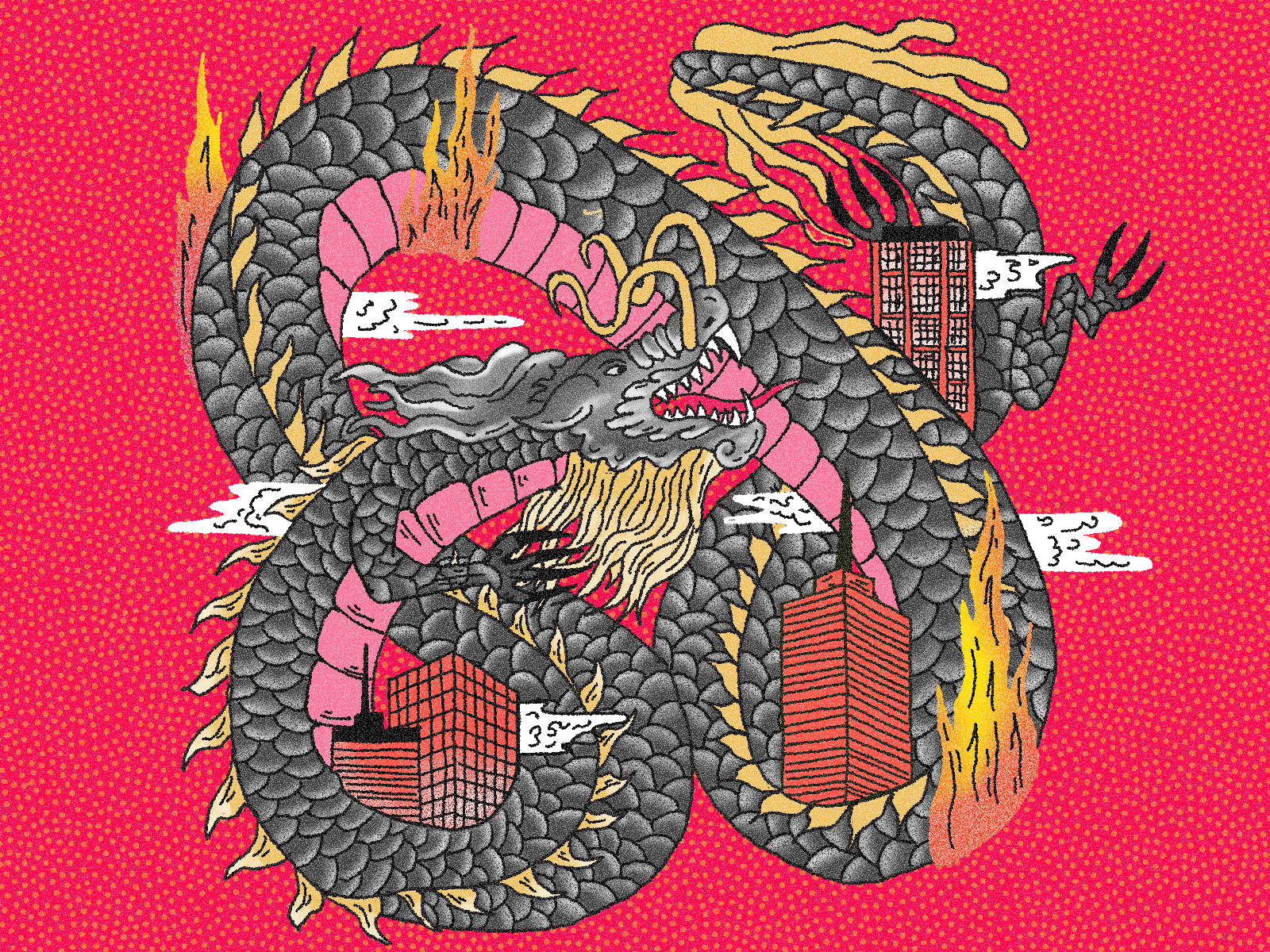Interview with Hugo Meijer.
The growing expansion of the People’s Republic of China' power in the post-Cold War era has brought about a great number of new challenges and questions for the Western world. European powers had to adapt to the changing power dynamics in their policies and priorities – but what exactly are these challenges, and how do they deal with them today? Hugo Meijer, researcher, Founding Director of The European Initiative for Security Studies (EISS), has investigated these questions in his book, Awakening to China’s Rise. He examined the responses of three European powers, France, Germany, and the United Kingdom (the „Great Three”), to China’s apparent rise.
The title of your book suggests that there has been a shift of attitude towards China due to its emergence in the post-Cold War era. How would you describe this shift, and what triggered this obvious change the most?
There has been a big shift in European approaches – the „Big Three,” France, Germany, and Great Britain, approached China’s rise in the past decade, so in the 2010s. That is because from the 1990s to the late 2000s, their policy was, in the simplest term, driven by a mix of greed and naivety. They looked very much at China as a market and wanted to strengthen their economic ties with it, but they did not perceive Beijing as a security or economic concern. The idea was that they were expanding economic relations with China and trying to broaden diplomatic cooperation with Beijing to bring China into the international system. They hoped that by doing so, they would spur, encourage and enable domestic reforms in China – both economic and political. They were hoping that China would democratize and westernize. It was a bit of a naive approach. In the past decade, China has become more assertive – China’s behavior has changed and become the trigger and driver for the shift. It started changing after the financial crisis in 2008, but it was in 2009, and the decade after that it has become more and more assertive and aggressive both in the Asia-Pacific and in Europe. This has completely changed the perceptions of Europeans – their threat perceptions have intensified, and they have started to see China as a significant security challenge as well as an economic competitor. Therefore, they have changed their policy goals: China’s rising assertiveness has been the main driver of change.

You have used the term „assertive” to characterize China a number of times. Specifically, what actions make China an assertive state?
In my book, I have tried to compare what China is doing in different regions, specifically in two key areas: the Asia-Pacific and Europe. China’s assertiveness takes different forms in these regions. In the Asia-Pacific, China has aimed to develop a Sino-centric hegemonic order – diplomatically, economically, and militarily. It is seen as more assertive in its military mobilization process by building islets on the South China Sea on which it claims sovereignty and becoming more aggressive in its relations with its neighbors in the East and South China Seas. In Europe, Chinese assertiveness has taken a different form. It is mostly economic, industrial, and political – the volume of Chinese investments increased considerably, including advanced technologies and other sensitive sectors. An additional concern is that China would use this economic leverage for political purposes and to foster divisions among Europeans.
What are the main challenges in the bilateral relations between European powers and China today?
Every country has its own foreign policy in Europe, but at the same time, there have been attempts at fostering greater coordination at the EU level. The EU has developed a common policy framework vis-à-vis China and the Indo-Pacific region. Yet, there are two key challenges moving forward for the EU to develop a robust and cohesive policy: the first one is that every country in Europe has different strategic and regional priorities. For the Baltic states, the key priority is Russia and not China nor the Mediterranean; for Southern European states, instability in the larger Mediterranean is the fundamental priority, not Russia or China. Every country has different priorities, which is a huge challenge because without shared strategic and regional priorities, how could they develop a common foreign policy? The second constraint is the lack of capabilities to project power in the Asia-Pacific – for instance, in terms of naval capabilities. This is a constraint for major European powers like France or the UK but even more so for medium and smaller nations.
How does the American approach towards China differ from the European? Could Europe and the US successfully cooperate in tackling Chinese expansion in the future?
There are a lot of differences and some similarities. The big difference is that the United States is a global hegemon with alliances and military bases across the globe, including in the Asia-Pacific region (with large bases in Japan and South Korea, for instance). The US has hundreds of thousands of military personnel in Asia while France has 7000 and the UK has 1600, which are the largest powers in Europe. Thus, the imbalance of capabilities is enormous. The US also has five treaty alliances in the region and a broad range of partnerships. By contrast, Europeans do not have formal alliances, only partners. The depth and breadth of the presence and commitments of the US and Europeans in the region are not comparable. There are some similarities in the sense that nobody wants to contain China, and I challenge all those who say that the US tries to stop China in the same way they did with the Soviet Union during the Cold War. Even if they wanted to, they could not. China is too integrated into the global economic system, and most US allies do not want to contain China. China is a partner on certain issues, a competitor on other topics, and a systemic rival on other matters at the same time. This is exactly how the EU defines China. The EU insists it does not want to contain China, but it is not equidistant between the US and China because of closer commonalities with Washington. Still, Brussels also does not want to be systematically aligned with the US. The European Union has aimed to pragmatically position itself within this mounting Sino-American strategic competition regarding the issue area, e.g., trade, investments, digital technologies/5G, human rights, Indo-Pacific security, etc.
How do you think the Ukrainian-Russian war could influence or change the power dynamics between China and the European powers? Could the war mean a potential weakening of one side and a strengthening of the other?
The honest answer is that it is too soon to tell, but there are different ways of looking at this. For the US, China remains an overarching challenge, what American strategic documents define as the „pacing challenge.” Russia is a concern, but it is a secondary concern compared to China – although Russia’s invasion of Ukraine is deemed to require immediate action. The hierarchy of priorities for the US is clear. Yes, Russia is increasingly perceived as a threat, but there are other concerns, with China being the central one. In terms of Sino-Russian relations, China is playing a delicate game. It does not want to support Russia completely; Beijing is not voting in Russia’s favor in the UN because it fears retaliation (i.e., secondary sanctions) and because China is attached to the norm of sovereignty and non-interference in the affairs of other countries. So, they cannot overtly support Russia’s invasion of Ukraine. At the same time, they do not want to condemn it because they have a very close partnership with Russia. They play a balancing game between these different interests. One interesting thing is the lessons for China from the Russo-Ukrainian war regarding Taiwan. They might realize that invading Taiwan may not be that easy, for instance, because Russia has been China's largest source of military imports, and a lot of this equipment has proved to be not always as effective as expected in Ukraine.

Where do you think China’s potential lies?
It is a combination of many things. There have been significant economic reforms; China entered the WTO in 2001 and started integrating itself into the global economic system. At the same time, it was quite effective at stealing technologies from other countries and putting restrictions on other states’ economic presence in China. And, of course, in the military realm, China has embarked on a major military modernization effort. Today China is a much more advanced military power than it used to be – we don’t know exactly how advanced China is as it didn’t go to war in decades, but two significant sources of its rising power lie in the military and the economic realms.
Would you evaluate specific measures – such as the ban on 5G networks in Germany – in defense of cybersecurity as overly radical or as a rational step?
The UK completely banned Huawei. France and Germany put more restrictions, but technically, they have not banned Huawei. They had three considerations to ponder: Firstly, security; to what extent is there a threat from Huawei in terms of spying but also physically disrupting digital networks? Then there was an economic consideration: banning Huawei would have implied huge investments to replace everything. Finally, there was a diplomatic consideration as the US was putting significant pressure on them, urging them to ban Huawei. At the same time, China also pressured them not to ban their high-tech company. Accordingly, in devising their policies toward Huawei, they have had to balance national security with economic and diplomatic considerations.
Graphics by Roland Molnár

A lampshade grown from mycelium could light up future’s everydays











